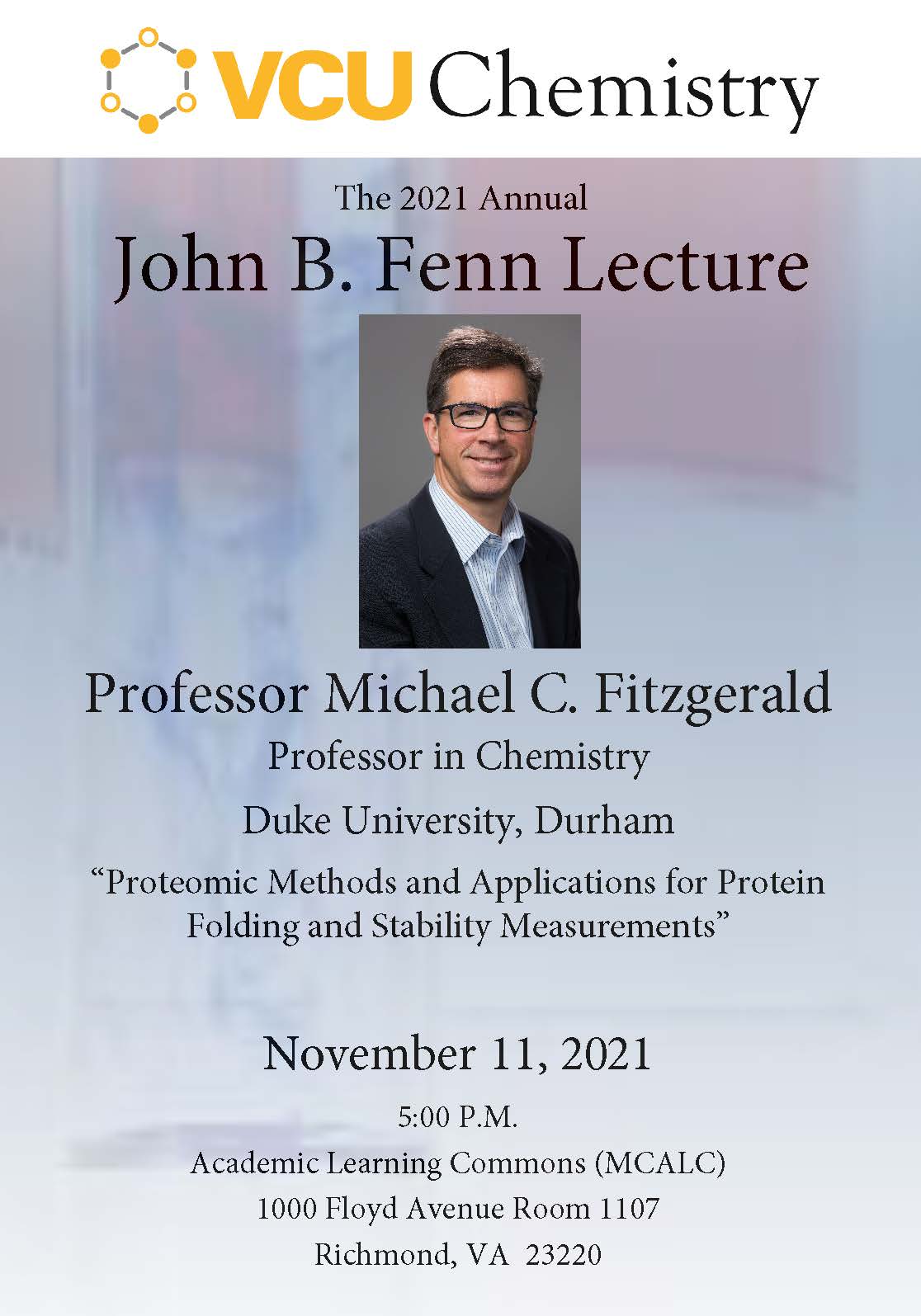
Professor Michael C. Fitzgerald, PhD Department of Chemistry, Duke University
Professor Michael C. Fitzgerald was a post-doctoral research fellow in Dr. Stephen B.H. Kent’s group at the Scripps Research Institute (La Jolla, CA) from 1994-1997. Prior to working with Dr. Kent, he earned a Ph.D. in Analytical Chemistry from the University of Wisconsin-Madison in 1994 working under the direction of Dr. Lloyd M. Smith; and he received a B.S. with Honors in Chemistry from Davidson College (Davidson, NC) in 1989. Dr. Fitzgerald joined the Department of Chemistry at Duke University (Durham, NC) as an Assistant Professor in 1998. He has since risen to the rank of full Professor, and he currently holds a secondary appointment in Duke University Medical Center’s Department of Biochemistry. Dr. Fitzgerald’s research group at Duke University has worked to develop protein mass spectrometry methods for the large-scale and high-throughput analysis of protein folding and ligand binding using amide hydrogen/deuterium exchange and other chemical modification strategies. These new methodologies are currently being used to characterize disease states and study drug action. Dr. Fitzgerald has co-authored over 100 peer-reviewed publications and book chapters and his work has been recognized with a Research Award from the American Society for Mass Spectrometry and with a Presidential Early Career Award from the National Science Foundation.
Proteomic Methods and Applications for Protein Folding and Stability Measurements
Protein folding and stability measurements can provide important biophysical information about the conformational properties of proteins and protein-ligand complexes. Experimental methods for such measurements have typically included spectroscopic and calorimetric methods and more recently, mass spectroscopy. The mass spectrometry-based proteomic methods highlighted in this presentation have the advantage over other approaches in that they are especially well-suited to the study of proteins in complex biological mixtures (e.g., cell lysates). Here we report on our work to develop and apply four closely related mass spectrometry-based approaches for making proteome-wide measurements of protein folding and stability. These approaches that we and others have developed in recent years include the Stability of Proteins from Rates of Oxidation (SPROX), Pulse Proteolysis (PP), Chemical Denaturation and Protein Precipitation (CPP), and Thermal Proteome Profiling (TPP) techniques. Common to these techniques is that they all involve the use of a protein modification reaction (e.g., a selective oxidation reaction involving methionine residues and hydrogen peroxide in SPROX, a non-specific proteolytic digestion reaction in PP, and protein precipitation reactions in CPP and TPP) to define the chemical (SPROX, PP, and CPP) or thermal (TPP) denaturation properties of proteins. They all also rely on the ligand-induced perturbation of these denaturation properties to detect (and in some cases quantify) protein-ligand binding interactions. Highlighted in this presentation will be the different experimental workflows and proteomic readouts employed for each approach as well as the advantages/disadvantages of each method. Also presented will be examples from our work using these methods in protein target discovery projects and in the characterization of biological processes such as aging and in disease states such as cancer.